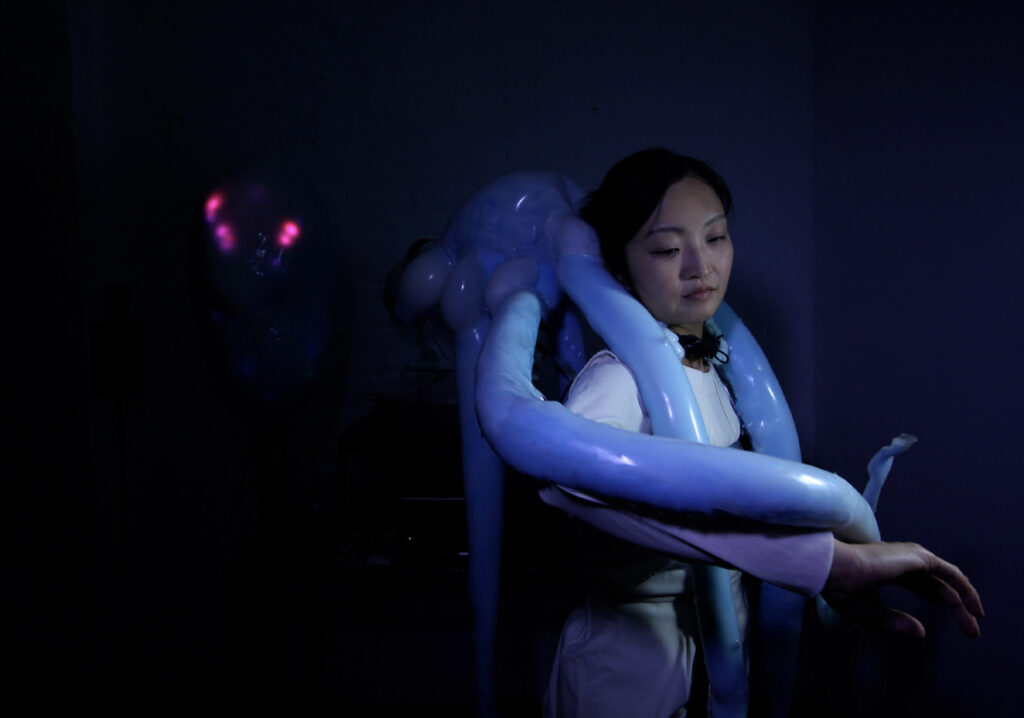
Burton Nitta, Altered Ways of Being, 2019 (video still)
In the 1970s, a philosopher famously pondered if and how the question “What is it like to be a bat?” can be answered. The newly emerging academic field of human-animal studies would lead extensive debates about the possibility, limitations, relevance and necessity of knowing what it is like to be another animal for understanding our relationships with them.
But what if this question is not actually about what it is like to be another animal, but what it does to the relationship to the world of the one imagining? The mind of an octopus is a form of nonhuman intelligence most different to our own. Yet the philosopher Peter Godfrey-Smith puts them on par with humans, as an alternative evolutionary path in the development of higher consciousness. Our minds, just like that of octopuses, are shaped by the specific experiential capacities of our bodies. Octopuses see with their skin, smell and taste with their suckers, change the color and texture of their skin in response to their thoughts, sense the world with a brain distributed across the body. What then does the attempt to feel and experience the world through an octopus to our minds?
By placing us in the center of their film, Burton Nitta summon the perspective of an octopus’ world. What is it like to be attentive all around you, instead to just focus on what’s in front of you? What is it like to imagine the touch of feathers stroking over you, to feel the water washing rhythmically back and forth over your skin, gently teetering you in the surf, yet not be able to escape it either? What (joint) evolutionary paths become possible in your human mind, once you fuse your own experience with that of the octopus?